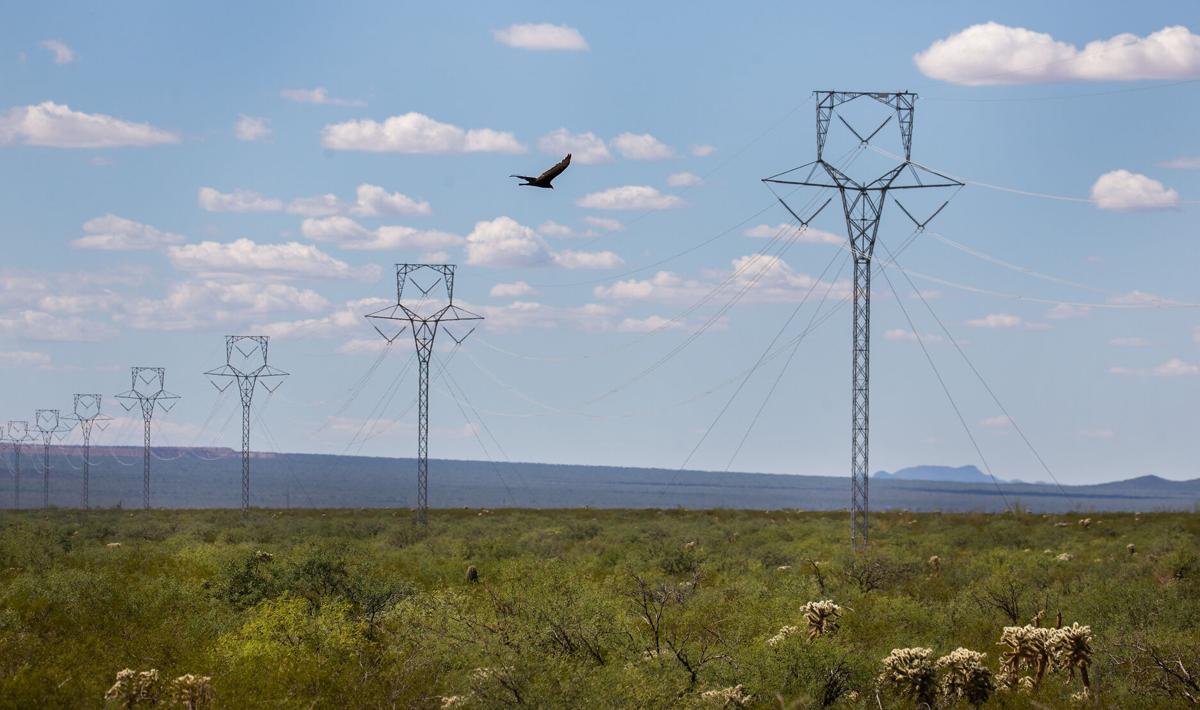Arizona utilities can’t legally shield themselves from being sued when their negligence kills or harms people or destroys property, the state Court of Appeals ruled Tuesday.
An attorney for Arizona Public Service had argued that its tariffs — the rules that govern its relationship with customers — shield it from ordinary negligence. And that, said attorney David Gaona, precluded Chao Xie and Yit Kiue Szeto from seeking damages from APS after a fire, allegedly caused by negligent maintenance of power lines, destroyed a home they owned in Maricopa County.
That same tariff, Gaona argued, also precluded a lawsuit by Lydia Briones who occupied the home.
But Appellate Judge Paul McMurdie, writing for the unanimous three-judge panel, said that misreads the law.
He said utilities can protect themselves against incidental damage, such as economic losses from power interruptions and even damage to equipment due to voltage fluctuations. But McMurdie said none of that shields a utility from what happens when its negligence in maintaining the electrical distribution system actually does what is alleged to have happened here: cause a fire that burns down a house.
Potentially more significant, the judge noted that the Arizona Constitution contains a specific provision guaranteeing the right to recover damages and spelling out that the amount recovered “shall not be subject to any statutory limitation.” That is known as the “anti-abrogation” clause.
“A statute that effectively deprives a claimant of the ability to bring an action protected by the anti-abrogation clause violates the constitution,” McMurdie wrote. And in this case, the judge said, the company’s tariffs, which had been approved by the Arizona Corporation Commission, are the functional equivalent of a statute.
An APS spokeswoman said the company was reviewing the ruling and had no immediate comment.
Court records said that a 2017 fire destroyed two homes, one of them owned by the Szetos and occupied by Briones.
Briones testified that she saw loose power lines dancing and sparking on the utility pole between her home and the house next door just before the fire. She said she and her son fled to the street where she heard an explosion from the rear yard.
Aside from destroying the home, the fire also damaged Briones’ personal possessions.
A fire investigator found that the fire was caused by arcing in the overhead electrical wires on the utility pole between the two homes.
APS managed to convince a trial judge to throw out the case, saying that the tariffs limiting the company’s legal exposure exempted it from liability for its “ordinary negligence.” And that, the judge said, meant APS could be found negligent and held liable only if it committed willful misconduct or gross negligence.
McMurdie said it is true that the process used by the Arizona Corporation Commission to set rates does require the regulators to consider a utility’s liabilities. But he said there are limits.
“The commission may limit a utility’s liability for economic damages resulting from service interruptions, which are appropriately considered in ratemaking decisions because of their contractual nature and potential magnitude,” the judge wrote. And he specifically noted that there could be huge implications — and huge liability — if a utility were subject to liability from a single power failure that could affect hundreds, thousands, “or, in the case of an electrical blackout, millions of people.”
But he said the commission is powerless to limit personal liability and property damages which do not have the same implications and magnitude.
The appellate court was no more convinced by arguments by APS that it was shielded in this case because of tariff language which exempts it from liability due to “fluctuations” in service.
“This argument fails because arcing along a service line is not a fluctuation in electric service,” McMurdie wrote.
“By disclaiming liability for damages occasioned by a fluctuation in electric service, the tariff eliminates liability for economic damages incurred when a customer receives voltage that is too high or too low to serve its purpose,” he continued. “But it does not eliminate liability for a fire caused by arcing on a service line.”
And McMurdie said that while a policy designed to protect utilities from being sued due to service interruptions may be justified, it cannot support eliminating liability for property damages caused directly by unsafe transmission lines.
As to that anti-abrogation clause of the Arizona Constitution, the appellate court acknowledged that, in some cases, people can contract to waive their right to sue. But the key, said McMurdie, is it has to be a knowing waiver — and the person giving up the right to sue has to have done so intentionally.
Part of what that means, the judge said, is dependent on whether the parties “have equal bargaining positions so that the choice was freely and fairly made and not forced by the circumstances.” And he said that a contract provision inserted into a utility’s tariffs probably doesn’t fit that definition.
Tuesday’s ruling does not mean the homeowners and the tenant will get to collect from APS. Unless overturned, what it does is return the case to the trial court where they will get a chance to make their legal and factual arguments.





